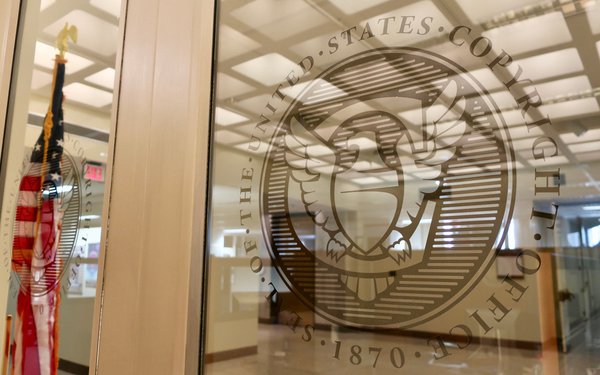
The U.S. Copyright office, contrary to the approach
taken in Europe, has declined to add an ancillary copyright for publishers to protect them from use of their content by aggregators.
In an opinion issued on June 30, the Office said publishers
already have significant protections under U.S. copyright law—for instance, they often hold copyrights to material they publish and have the right to sue.
In addition, commenters
argue that new copyright protections could violate the First Amendment.
Publishers also have protections outside of copyright law—for instance, they can prevent aggregation through
paywalls, password protection, or use of the robots.txt exclusion protocol to stop most web crawlers, the opinion says.
Don’t think that the Copyright Office is indifferent to the
problems faced by publishers.
advertisement
advertisement
It notes that “adequate funding for journalism may currently be at risk, and that there are implications for the press’s essential role in our
system of government.”
But it adds that “the challenges for press publishers do not appear to be copyright-specific.” Finally, press publishers themselves assert that
“they cannot insist on aggregators paying to reuse news content because of their relatively weak bargaining position.”
In contrast to the U.S. approach, Article 15 of the European
Union’s Directive on Copyright and Related Rights in the Digital Single Market, grants publishers a new right to authorize or prohibit reproduction by third-party service providers for two years
after publication. And individual countries have passed laws.
However, the U.S. opinion notes that European publishers often lack copyrights on material.
Did U.S.
publishers just suffer a defeat?
Probably not, given that there seems to be no great appetite for new protections.
On the one hand, the Office received comment from press
publishers’ and authors' groups “who asserted that news aggregators [get a] ‘free ride’ on publishers' investment in original reporting.”
Yet both sides of the
issue “see the challenges publishers face as more a matter of competition policy than copyright.”
The opinion also contains reminders of factors that some publishing executives may
have forgotten. For example, it states, “Facts and ideas are not protectable by copyright.”
It continues, “The merger doctrine allows the use of original expression
where there are limited ways of expressing a particular fact or idea, and individual words, titles, and short phrases are generally not protectable. Even where an aggregator reuses protectable
expression, the fair use doctrine may apply.”
It also points out that “smaller elements like headlines may not be copyrightable under the words and short phrases
doctrine.”
If new protections were added, publishers would have to decide if they wanted to protect their content—and lose traffic provided by the Googles and Facebooks. For now,
the Copyright Office has taken the decision out of their hands.
The opinion had been requested by Senators Thom Tillis, Patrick Leahy, John Cornyn, Mazie K. Hirono, Amy Klobuchar and
Christopher A. Coons, members of the Subcommittee on Intellectual Property.